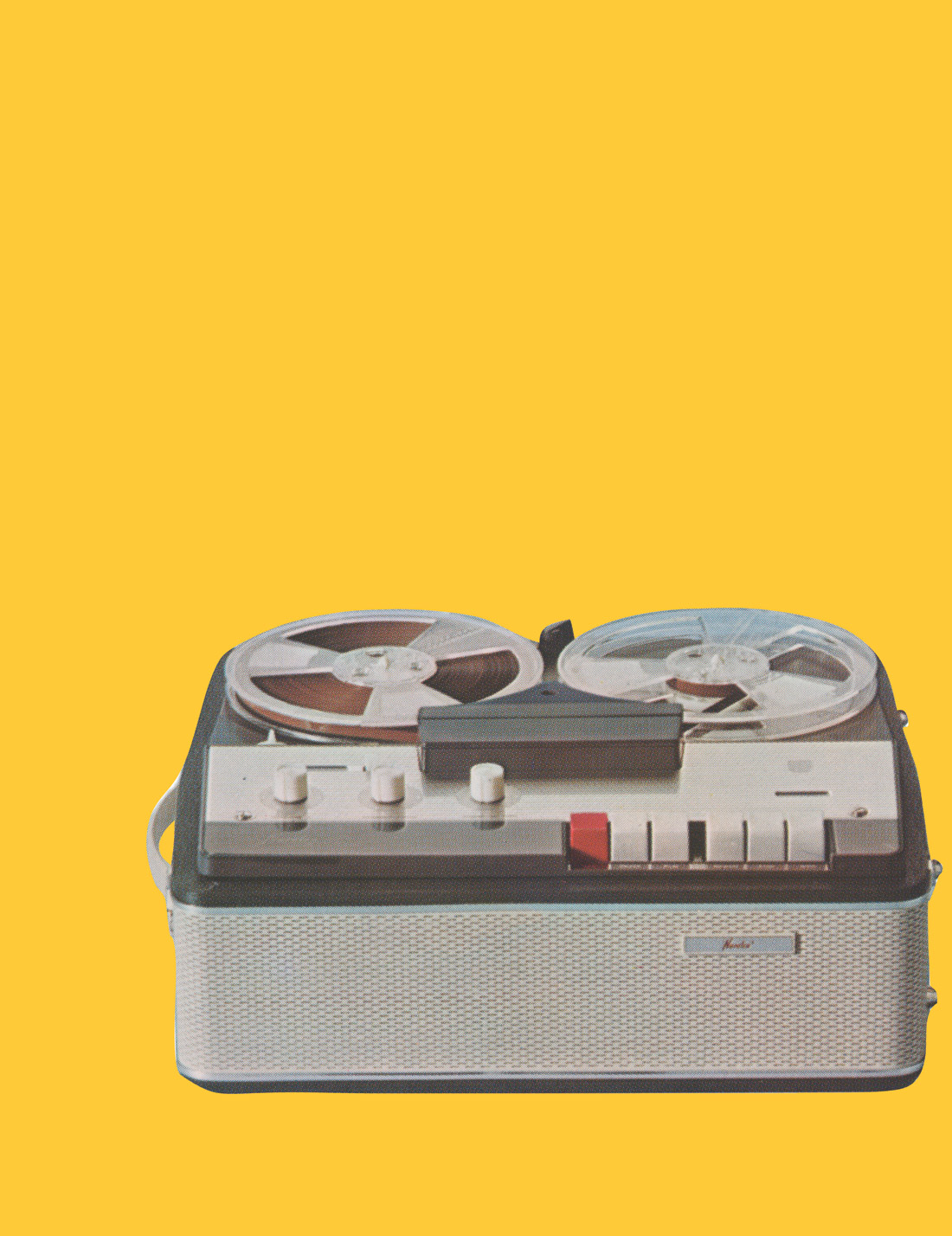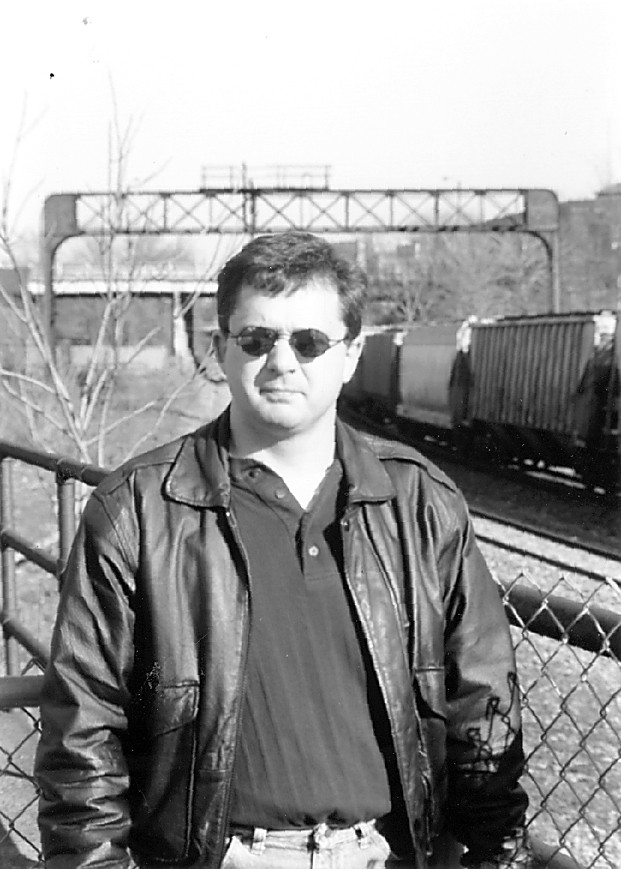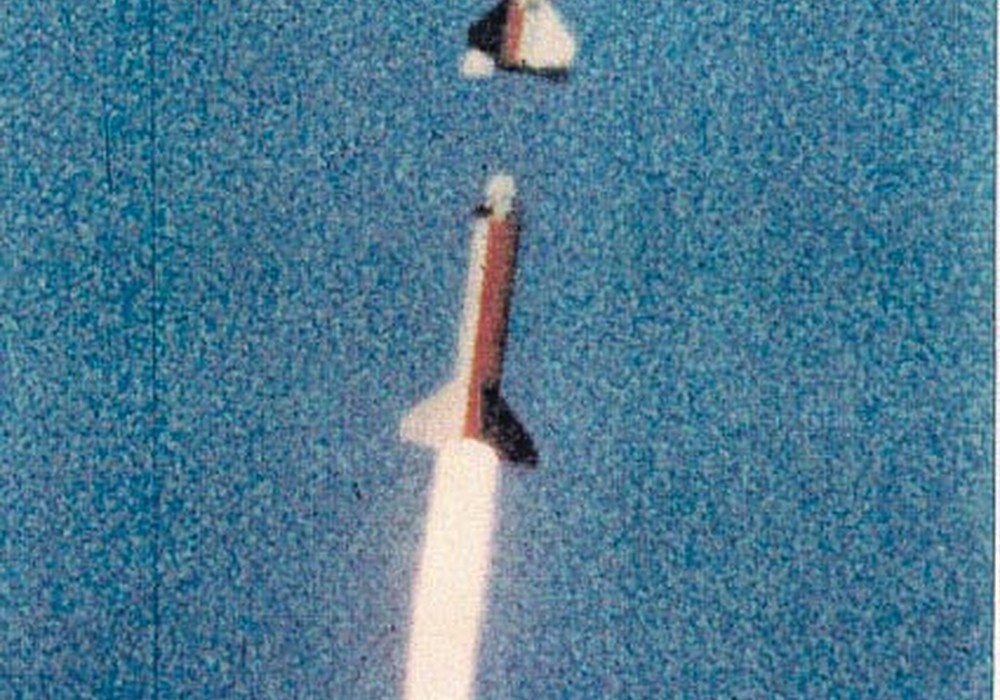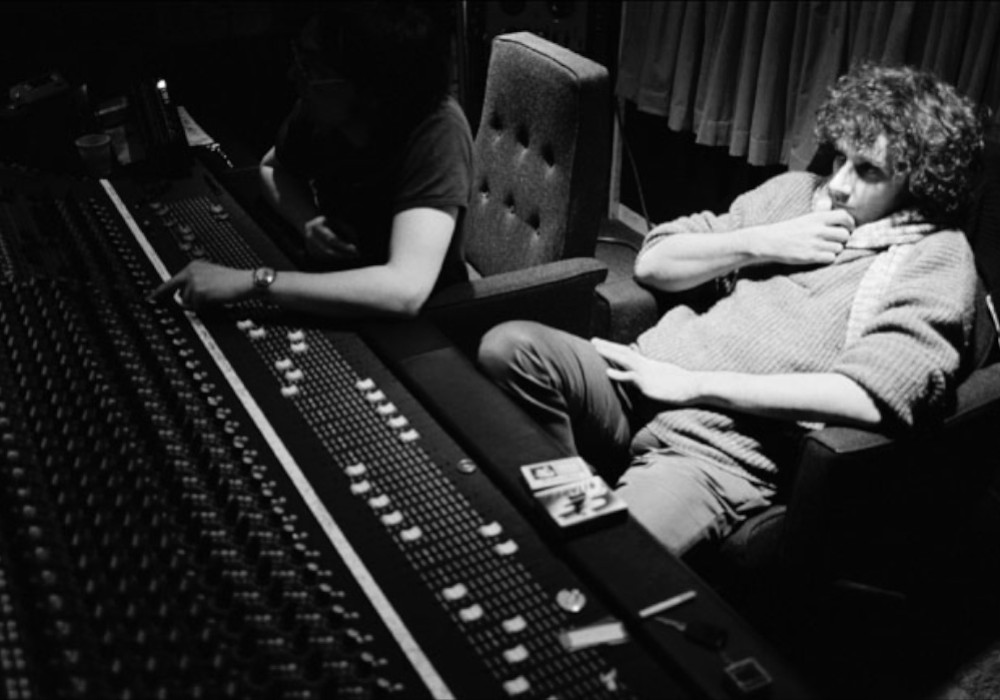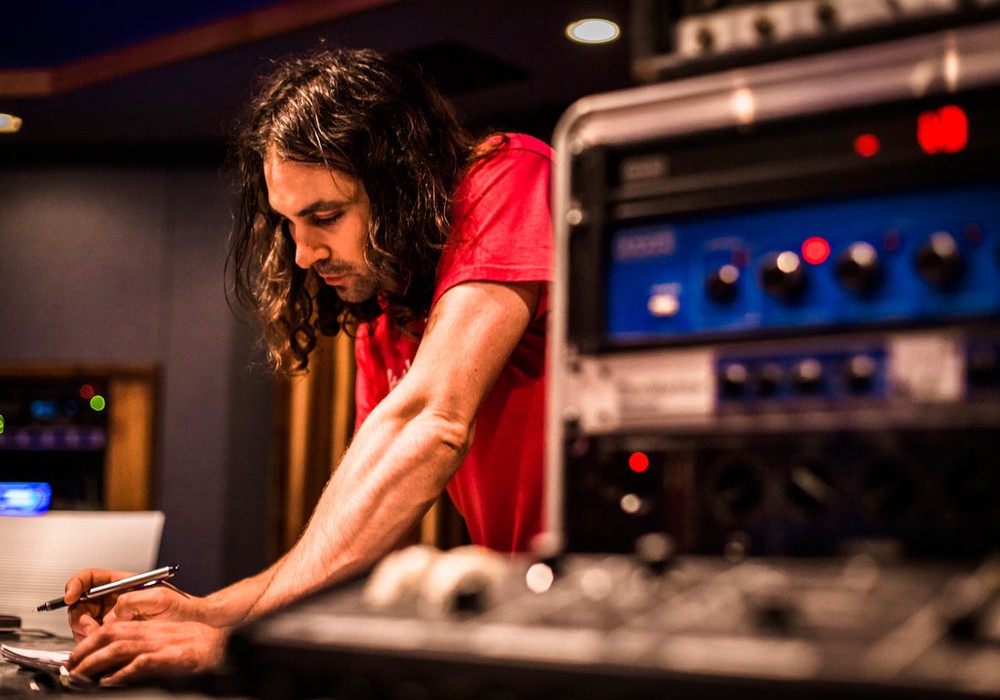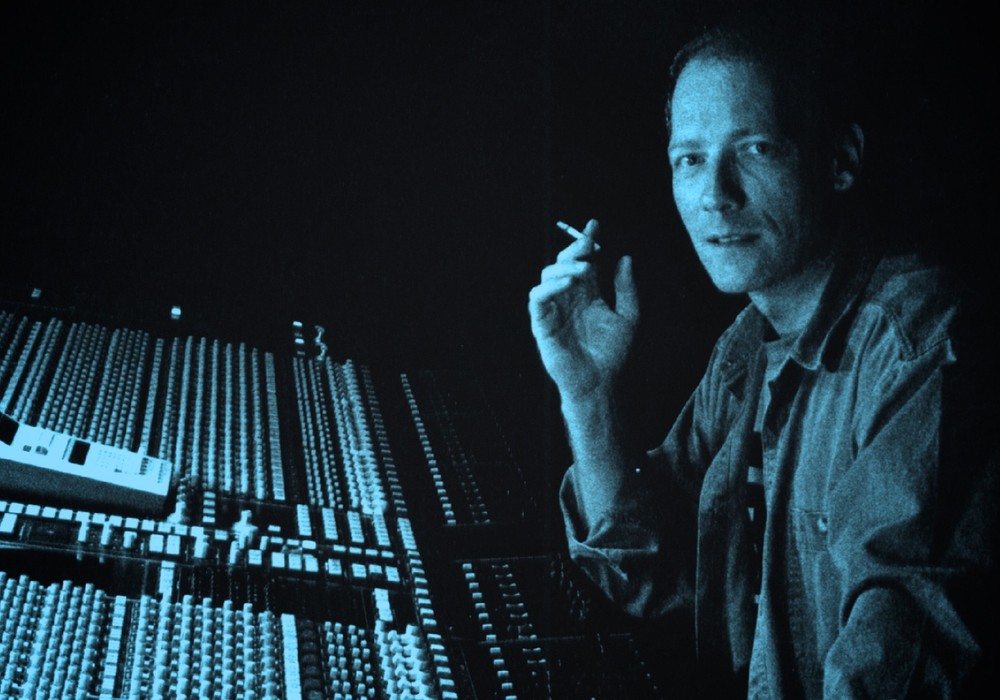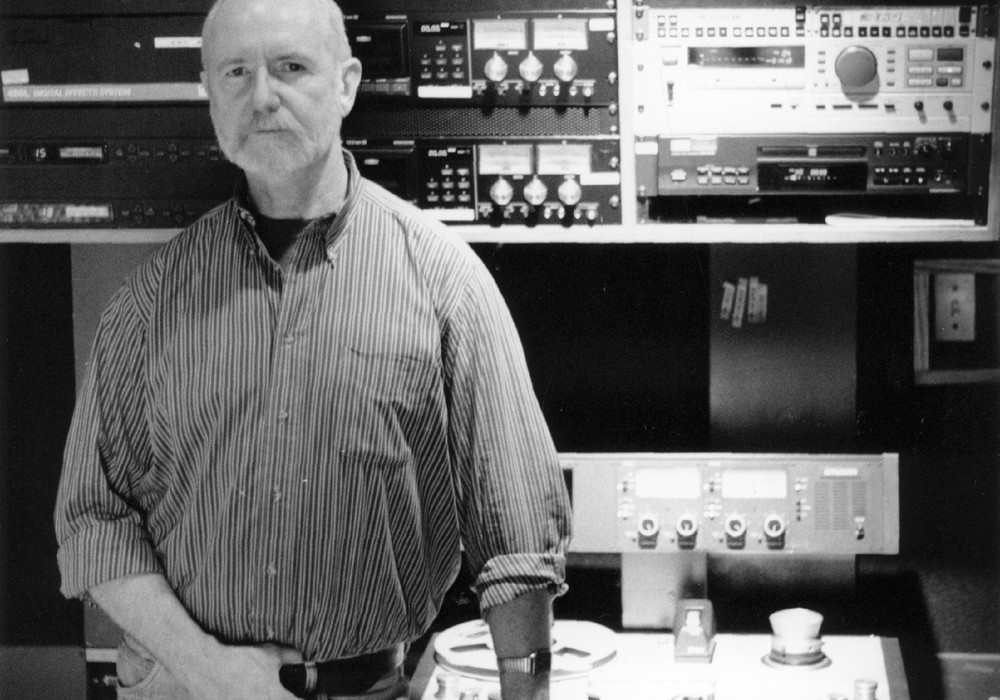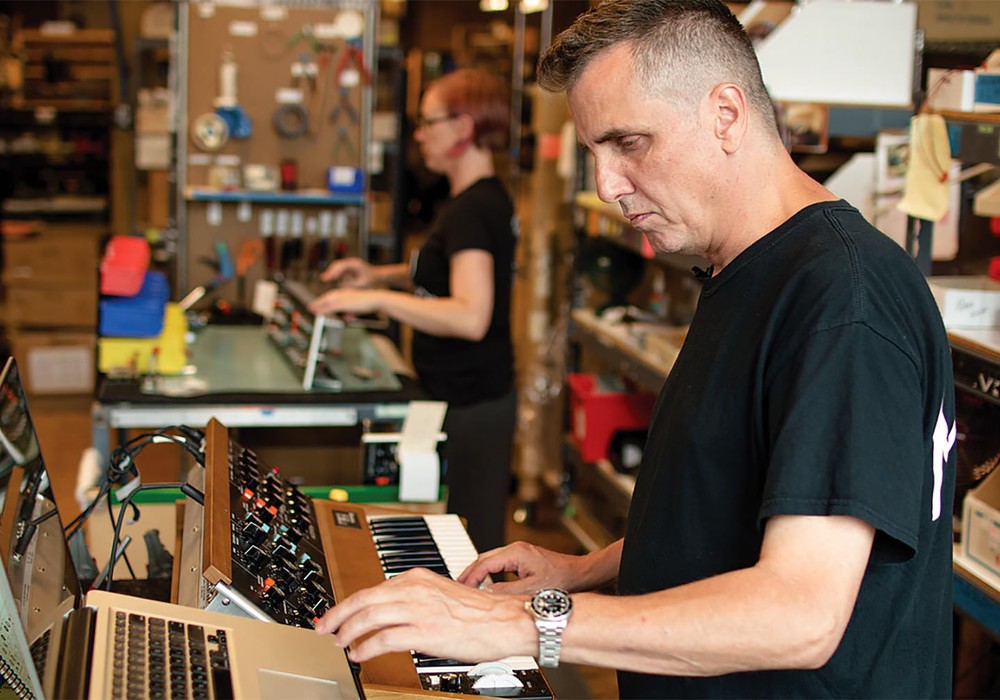Carmen mostly records by himself at home on cassette four-track, playing guitars, keyboards, bass, drums, and doing very nice vocal harmonies. He has also collaborated with synth wizard Ken Clinger, released a CD (Nothing Personal) on Émigré' Records, and drummed for Witch Hazel and the King Dapper Combo.
The earliest release in Carmen's catalog is Naive Assumptions (1989). It's a 30-minute compilation of some of his earliest record- ings. Ray writes, sings, performs, and pro- duces everything on the tape. Naive Assumptions opens with "I'll Get You For That", featuring a nice jangly guitar and "why did I fall in love with you" lyrics, and closes with "Take It Like A Man" which is best described as Casio synth-pop. While Naive Assumptions doesn't sound quite as developed as the later tapes, it is a charming and delightful listen.
Duet Yourself (1990) is described in the POP! catalog as "The one everyone likes." It opens with three very angry songs: "Passive/Aggressive" ("Is it just you or is it cold in here?"), "Brand New Boyfriend," and "The Weight." Things lighten up a bit with a cover of Mike Nesmith's "You Just May Be The One," and a light-industrial version of Nesmith, Goffin and Kings "Sweet Young Thing." This tape is classic Ray Carmen.
1993's Bubblegum Buddha is sort of a sequel to Duet Yourself. It opens with chiming keyboards on "Rise and Shine," throws the listener a curve with "Too Much Coffee" with its heav- ily distorted guitars and vocal, and settles into traditional Carmen-esque guitar- pop on "Out Of Your Hair" and the songs that follow. Other highlights on Buddha are the driving but still jangly "More Than Enough," the Japanese sounding instrumental "Rain On The Road," and the wonderful "Vanquished."
In 1995 Ray collaborated with the above-mentioned Ken Clinger on Hopes And Fears. Clinger wrote and played most of the music and Carmen wrote and sang the lyrics. Clinger's keyboard programming is beautiful and his orchestral arrangements are gor- geous. Carmen's lyrics on songs like "She Says" and "Better Off Alone" focus on his then-current divorce. Hopes And Fears also contains four covers, including a take on the Banana Splits' "I Enjoy Being A Boy" and the Beatles' "Here, There, and Everywhere," which reflect Carmen's optimism over his burgeoning relationship with his now new wife. Hopes And Fears was mostly recorded by Clinger to DAT.
Hopes And Fears was followed by 1996's acoustic EP Accidentally On Purpose, which again featured Carmen as sole musician and engineer. The one exception to this is some fiddle played by Blind Waldo on the pseudo- country tune "Ugly and Slouchy." This tape features early versions of "A New Beginning," "Monster," and "Nothing More To Say," all later re-recorded for 1997's Too Old For Angst.
After Accidentally On Purpose came Hanger 18 and an EP entitled Snow Day. Hanger 18 is described in the POP! catalog as "thirteen ambient, experimental tracks from a few guys who should know better." The Snow Day EP is another collaboration with Ken Clinger and features three Christmas songs.
Too Old For Angst is Carmen's most recent album of new original material. This cassette represents a nice leap forward in Ray's progression as a recordist. The arrange- ments have more nice, subtle touches (ear candy!), and as a whole the tape sounds cleaner, clearer, and more confident than his earlier cassettes. I don't know for sure whether this is due to better recording equipment or simply experience and prac- tice. I suspect it's a bit of both. Some of the songs, like the re-recording of "Monster" and "Walk Away," were done in collaboration with Ken Clinger. Most of the others are all Ray.
1998's Old And In The Way is a collection of remakes and rarities. It opens with a 16-track version of "Me And My Big Mouth," which was originally heard on Naive Assumptions. Following that are nine songs from the Nothing Personal CD. Nothing Personal was recorded in an 8-track studio, with Carmen again playing all the instru- ments. Even though there's lots of good stuff here (including several remakes from Duet Yourself) and the recording quality is good, Ray himself says that he's not crazy about it and that he could do a much better CD now. Based on Too Old For Angst, I believe him. Side two of Old features assorted rarities from various compilations and several songs from What The Hell Is That?!, which I assume predates Naive Assumptions, as it includes early acoustic versions of several songs that appeared on that tape.
The latest release in the POP! Productions catalog is a cassette single titled Lucky 13. It contains a gorgeous cover of "Daydream Believer," featuring synth programming by Ken Clinger, and is backed with Ray's take on the Residents' "Constantinople." These songs will be included on Carmen's next full-length cassette Correct Me If I'm Wrong, which will mostly be cover tunes.
In the online 'zine Free Agent, Mike Bowman said of Carmen's several tapes that "there's not a clunker in the bunch." I have to agree. Over his several tapes you can hear definite artistic development and progres- sion. They reward repeated listening. They're original yet familiar and personal yet univer- sal. And they're inexpensive — no cassette in the POP! catalog costs more than $4.00. Best of all, they're good.
What kind of recording equipment do you use? You say "4-track" quite a bit. Is it a PortaStudio?
Actually, no, it's an old Fostex X-30! I don't think they even make them anymore. There's no built-in mixer in it, just the bare bones stuff, like bass and treble controls... I've never used a mixer. I just plug everything directly into the Fostex (or into an effects rack, then into the Fostex), and hope for the best. Sometimes I get it, sometimes I don't.
How does that compare with going to DAT? Do you have any experience with ADATs?
Well, DAT definitely sounds better, but it also makes your mistakes that much more clear! The only experience I've had with DAT was recording my Hopes and Fears album with Ken Clinger. He did the music on computer and I did the vocals and occasional instrumental overdubs. We did it at his home studio. As for ADAT, I recorded a 16-track version of one of my songs, "Me And My Big Mouth" on two 8- track ADATs synched together. It turned out really nice. Much better than the 8-track ver- sion I did on my Nothing Personal CD.
How has your equipment arsenal grown over the years?
Slowly. I have the aforementioned Fostex, plus a nice effects unit, a Zoom Studio 1202, with CD quality effects on it. I have a couple of halfway decent mics. One is made by Audio Technica, the other one by Electro-Voice. For drums I have a Yamaha DR-550, plus I also have a regular drum kit, which I haven't had the nerve to try and record yet! I have no clue how to mic drums. My guitar is a sunburst red 6-string Rickenbacker. My pride and joy! For acoustics I use a 6-string and a Yamaha 12-string. I have a very old bass that has the word Kalamazoo written across the head. I don't even remember where I got it. Plus I have a couple of cheap old Casios and a bunch of odds and ends like a tam- bourine, a toy harmonica, a beer-mug microphone, and one of those tubes you whirl around...
Do you have Pete Townsend's Scoop collection? The liner notes on his evolving studio fascinate me.
Yeah, I LOVE that album! I remember he used one of those whirling tubes as a link for some- thing on that record! He's a genius, and that's probably my favorite album of his.
How do you record?
Well, it depends on the song, obviously, but generally the first four tracks are the drum machine on two tracks and the rhythm guitars on the other two. Then I mix those down to another tape, and add bass, and lead guitar, or a keyboard, or whatever. Then those two get mixed down to another tape and I add vocals. Again, it depends on the song. Sometimes there are no drums; sometimes the drums are me playing the drum machine by hand on two tracks, or maybe putting a pre- set rhythm on one track and adding drum fills on the other. But that's basically my method. I never bounce tracks on the same tape, though, because, frankly, it sounds like shit.
Do you have any tips for Tape Op readers?
Nope. If you're a TAPE OP reader you already know more about home recording than I do!
How often do you record? Do you set a schedule for yourself?
No, I've never set a schedule because I would never stick to it! I record off and on all the time but it usually takes me about two years to come up with a 10 or 12 song "album". But I often release EPs of "works in progress", like cassette singles, so I usually come out with SOMETHING every year. It's funny, sometimes when I'm at work I'll think to myself, "well, I'll work on some music when I go home tonight". But then when I get home I'm not in the mood or I'm too tired. Once I start a song, though, I can't sleep until I've got it finished, so if it spreads out over two or three days, I spend ALL my time thinking about it; at work or wherever.
You've been recording since 1987, right?
1986, actually.
What inspired you to start?
Well, I've always wanted to be a musician for as long as I can remember. When I was 8 years old I got Paul McCartney's first solo album for Christmas, and even back then I knew that's what I wanted to do- make records and play everything myself! I was a crashing bore to my classmates, lemme tell ya. Then around the summer of 1986, I got so sick of what I was hearing on the radio that I decided to get off my ass start doing some- thing about it. So I started recording my own songs at home. Ultimately, that's the reason why I do music--for myself. I know this sounds really pretentious, but it is "artistic expression" for me. It's fun and fulfilling for me to build a song track by track and hear the end result. It's a real creative thrill, and the fact that I have a small core of people who like what I do is an added bonus for me. I know that sounds really hokey, but that's how I feel about it. Sometimes I'll feel really shitty about what I'm doing, and then I'll get a letter in the mail from somebody telling me how much they liked one of my tapes, and that totally knocks me for a loop.
I assume POP! Productions is not your primary source of income...
Check (or in this case, NO check)!
...but how does the catalog do? Do you sell many tapes? Or do you do more trading?
I don't sell that many tapes. I do more trading than selling, but every year I get a few new people on the mailing list. I could be adver- tising a lot more than I do, but I really can't afford that. Every year I try and network a lit- tle more, though, so it's building.
How does doing cassettes yourself compare with being on an indie label? What were your experiences there?
Well, my Nothing Personal CD came out on the Émigré label about six years ago. I think being on an indie label can be real benefi- cial. You get more distribution, obviously, and some ad space in magazines. You have a much better chance of being taken seriously by music publications that won't even con- sider reviewing cassettes.
Would you record for a label again, or do you prefer to do it yourself?
Sure, I'd record for a label again. I like the whole do-it-yourself ethic and I'll contin- ue to do it regardless of whether I'm on a label or not. But if an indie label asked me to do an album I'd be stupid to pass up the chance.
What do you think of CDRs?
I feel like cassette releases are not really thought of as "legitimate." A self-released CD will get you attention in many places a tape won't. I think as time goes by and they become more affordable, you'll be seeing a LOT more CD-Rs. Whether or not they'll replace cassettes, I don't know. I have a few CD-Rs available myself. Ken Clinger sells them through his Bovine Productions web page. He's the one that makes them.
What prompted you to re-master your catalog a couple of years back?
The main reason is because some of my masters were starting to get pretty worn, especially the one for Duet Yourself. I must have made a cou- ple hundred copies of that for people. The other reason is because I had a cassette called Lost and Found, Vol. One that I deleted from my cat- alog and I added some of the tracks from it to other cassettes. I figured since I was remaster- ing I might as use some of those songs because some of them were too good to lose. But overall Lost and Found was not a very good tape. It was a collection of leftovers, basically.
Do you do something non-musical for a living? How old are you? Does your wife encourage you to record and play?
I work for a branch of the Akron-Summit County Public Library. I've been in the system for ten years now. My wife is very encouraging. As for how old I am, well, let's just say I'm half way to 72! [laughs]
Do you play live shows? I've been doing solo acoustic shows, myself, as I've had a hard time finding band members. Especially those that will stick to the arrangements on the tapes.
Well, you've got more guts than I do! No, I don't do live shows.
